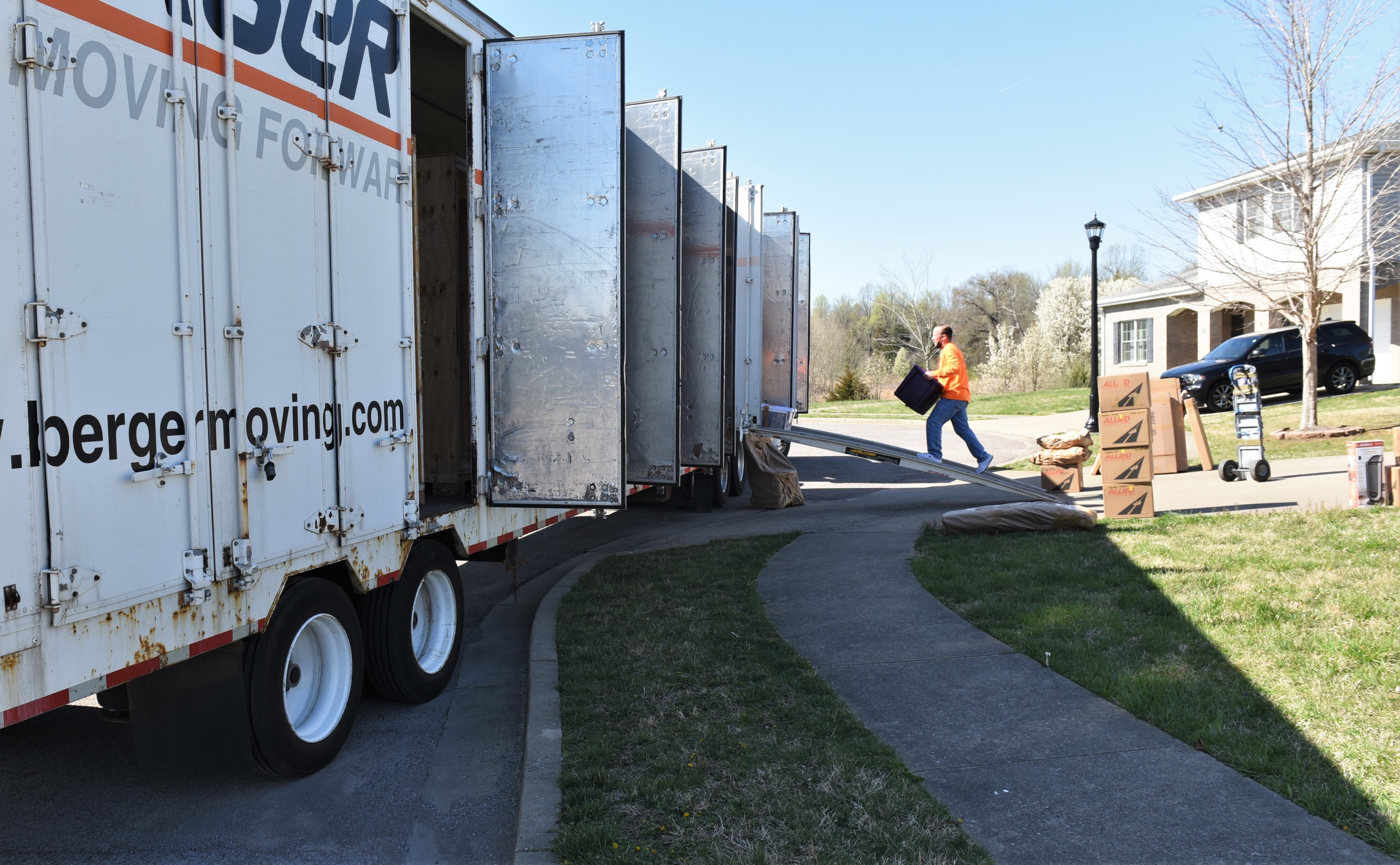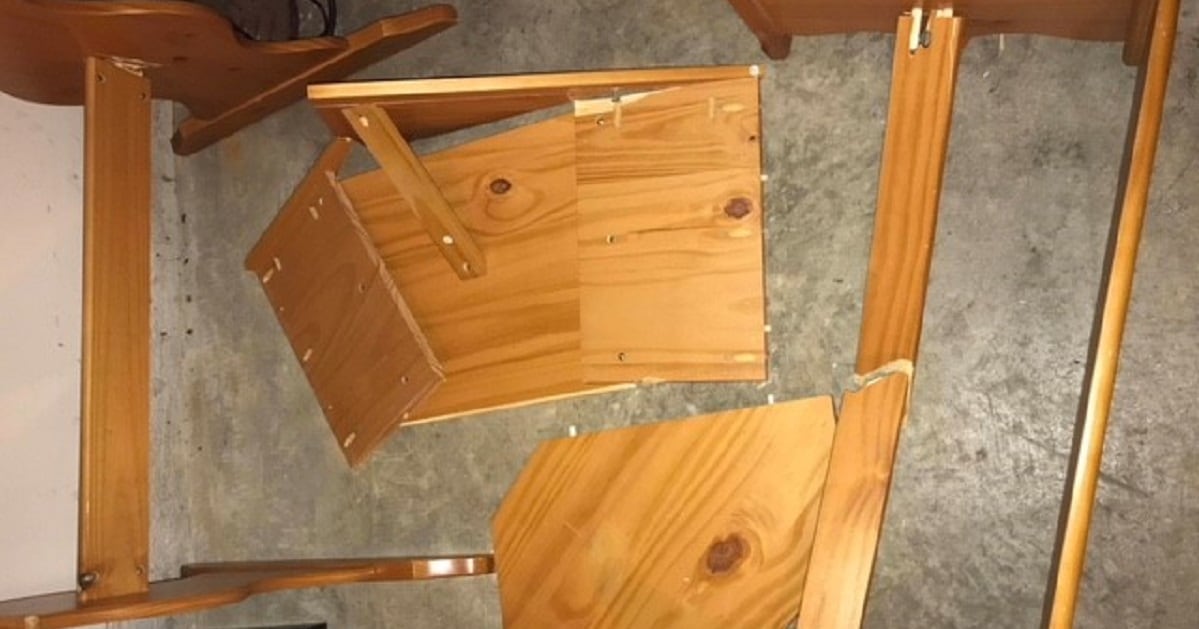Connected Global Solutions, an unsuccessful bidder for the $6.2 billion worldwide household goods moving contract, has filed a protest in federal court, again delaying Defense Department efforts to fix many of the long-standing problems plaguing service members who must change stations.
The new contract essentially outsources the management of the household goods moving process, although U.S. Transportation Command will oversee the program. The winning bidder will pull together a network of moving companies from across the industry and coordinate military moves and warehouse services, integrating functions that are currently performed by more than 900 commercial movers. The contractor will be fully responsible for these moves, bringing accountability to the program.
Following U.S. Transportation Command’s Nov. 4 decision to award the contract to HomeSafe Alliance, a joint venture of KBR Services LLC and Tier One Relocation LLC, the two unsuccessful bidders — Connected Global and American Roll-On Roll-Off Carrier Group Inc. — filed protests with the Government Accountability Office. GAO denied both protests March 3.
Connected Global then filed a protest March 14 in the U.S. Court of Federal Claims, the next option for unsuccessful bidders.
TRANSCOM began the transition period with HomeSafe Alliance March 4. The contract includes a transition period of nine months and a three-year base period, but with option periods the value of the contract could grow to about $18 billion over time.
On Wednesday, TRANSCOM announced it has agreed to a stay of performance, putting on hold the work on the new contract until the litigation is concluded. The delay could extend the timeline for implementation of the new program well into 2023, depending on the time the case remains before the court and whether its decision sends TRANSCOM back to the drawing board.
For this year’s moving season, service members will still move under the current household goods program, in which more than 900 commercial companies handle about 325,000 shipments year at a cost of about $2.2 billion. Service members often have more than one shipment with their moves.
Because of the shortage of quality movers, capacity has long been a problem in the military moving arena, with shortages of truck drivers and labor for packing, loading and unloading. Service members have had trouble getting moves scheduled and having their household goods delivered on time, and the pandemic has exacerbated the delays. Damaged and lost belongings have also been a problem.
RELATED

TRANSCOM’s attempt to address those problems has been in the works since early 2019, when it announced plans to hire one company to manage household goods moves around the world. The command originally awarded the contract to American Roll-On Roll-Off Carrier Group in May 2020, but GAO sent TRANSCOM back to the drawing board in 2021 after upholding protests from HomeSafe and Connected Global.
At the request of Connected Global, court documents have been sealed to protect proprietary, confidential and source selection information, and the judge has issued a protective order.
But some details are found in the GAO’s March 21 public announcement of its decision to deny the protests. TRANSCOM and the bidders involved had been notified on March 3.
According to GAO, Connected Global had asserted that TRANSCOM’s conduct of discussions with the bidders “was not meaningful, that the agency unreasonably evaluated technical proposals, and the agency performed an improper best-value tradeoff analysis.”
GAO found that TRANSCOM’s source selection authority found a “discernable difference” between the proposals of Connected Global and HomeSafe in two areas: getting enough mover capacity; and soliciting subcontractors and the criteria for awarding moves to those subcontractors.
Many military families have complained about the quality of their moves, as TRANSCOM’s current system struggled to find any mover to move household goods especially in peak season, when there’s more competition with commercial moves.
RELATED

GAO’s denial of Connected Global’s protest stated that after comparing its proposal with that of HomeSafe, TRANSCOM’s source selection authority found that “HomeSafe’s technical proposal, taken as a whole, represents superior technical capability with an added emphasis on improving the customer’s experience during the move process. …”
Although Connected Global submitted a lower bid — by about $225 million over the life of the potential $18 billion contract — GAO noted that the source selection authority “traded off a price premium of less than 1.5% for a proposal that the [authority] considered ‘superior,’ ‘innovative’ and ‘impactful.’”
According to the GAO decision, the source selection authority concluded that after comparing the proposals of the two bidders under all technical capability factors, “HomeSafe’s technical proposal, taken as a whole, represents superior technical capability with an added emphasis on improving the customer’s experience during the move process, as compared to CGSL’s proposal.”
Editor’s Note: This story has been updated to include new information from TRANSCOM.
Karen has covered military families, quality of life and consumer issues for Military Times for more than 30 years, and is co-author of a chapter on media coverage of military families in the book "A Battle Plan for Supporting Military Families." She previously worked for newspapers in Guam, Norfolk, Jacksonville, Fla., and Athens, Ga.




